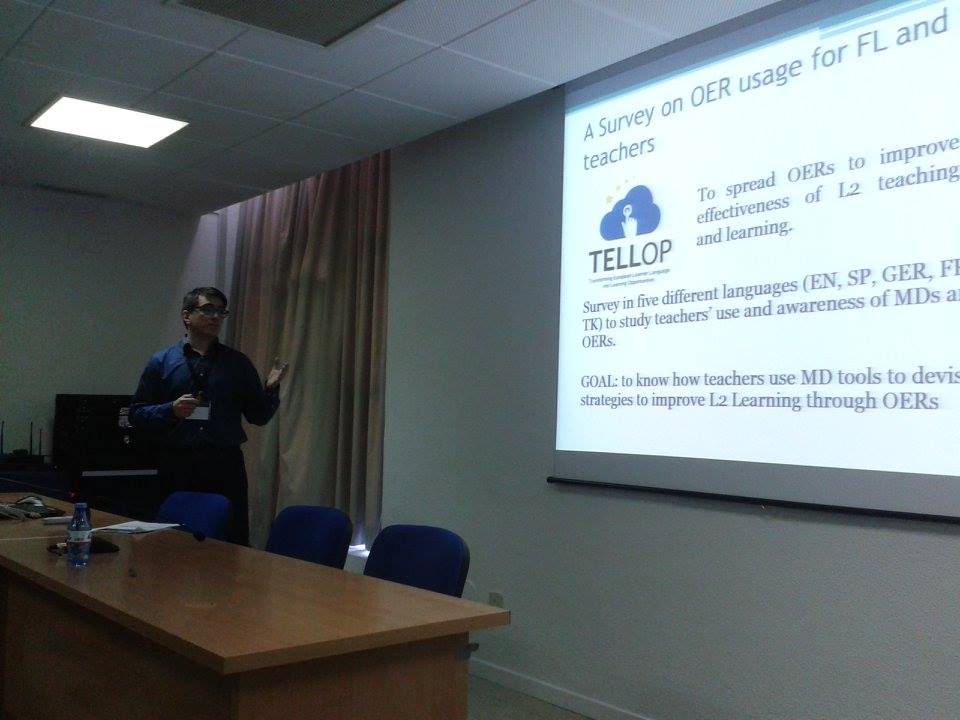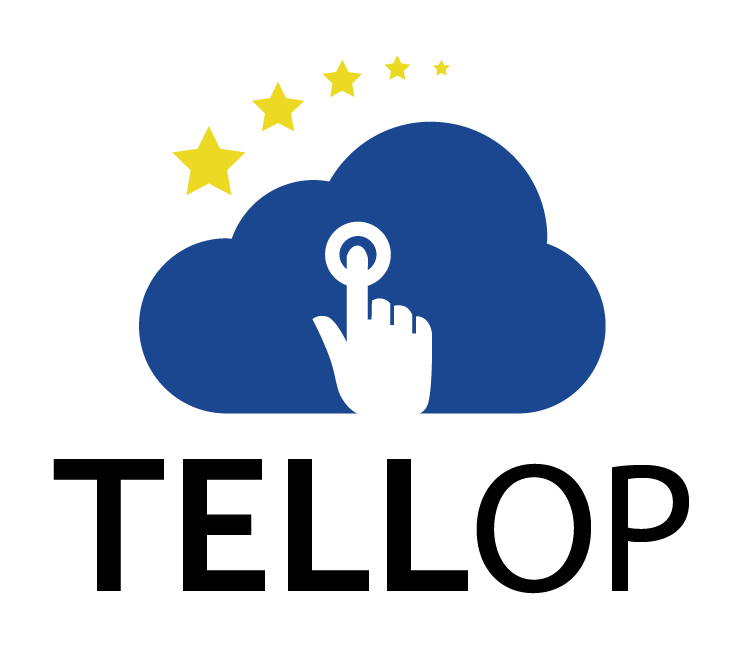

The TELL-OP project made its appearance on the AESLA conference in Alicante, Spain, on April 15th.
The title of the presentation was “Language Teachers’ Uptake of Mobile Assisted Language Learning (MALL) and Language Processing Technologies”
ABSTRACT OF THE PRESENTATION
While the purpose of Open Educational Resources is to provide open access to high quality digital educational materials (Caswell et al., 2008), the availability of such quality, truly mobile resources for learners (Kukulska-Hulme, 2009) is very limited in the context of instructed language learning. It is beyond the scope of this paper to discuss in detail the reasons that underlie this shortage of resources, but one of them is the sheer number of scattered initiatives that offer learning opportunities outside the official curriculum with no connection with the individual long-term needs of the learners. Chambers & Bax (2006) highlighted that the normalization and adoption of such resources could only happen if learners found them integrated in their curriculum, and if they could offer some degree of personalization. In the mean time, ELT business players have already identified that e-learning and mobile learning will replace some of the traditional print business model that has been in place in the past decades . As the vast majority of the population live connected to the Internet through PCs, laptops, smartphones or tablets, access to OERs is easier than ever; however, its usage in foreign language education is not perceived as widespread. In a context where technology-supported language learning has been found to be at least as effective as traditional contexts (Grgurović et al. 2013), the extent to which OERs are known by language teachers could be crucial for devising OER-knowledge development and dissemination strategies.
In the framework of the European Project TELL-OP, an international survey was conducted in order to ask language teachers around Europe and beyond about their knowledge and usage of OERs in the context of foreign language teaching. This paper analyses the results collected from Spanish L2 teachers (n=131). The survey (Ordoñana et al., 2015) was composed of three main blocks: personal data, technology and mobile devices, familiarity with OERs and different language learning and processing tools.
Our results show that most teachers are familiar with OERs, although a very high number of participants also admitted that they had never heard of them before or used them at all. Regarding the different online tools that were presented as examples of OER, the most common in both familiarity and usage were online collocation dictionaries and databases, automated POS tagging being the least known and used. This survey offers a unique opportunity to discuss feedback from language education professionals regarding OER technologies and the possibilities they offer in the field of language learning, including integration (Chambers & Bax, 2006) and learning personalisation (Kukulska-Hulme, 2009).
Research shows that OERs have a positive impact on students’ “enthusiasm, engagement and confidence” (Weller et al., 2015:359). By looking more closely into our survey results, we will be able to draw valuable information from practitioners in the field in order to inform and further improve future OER development and dissemination strategies in the broader area of applied linguistics.


